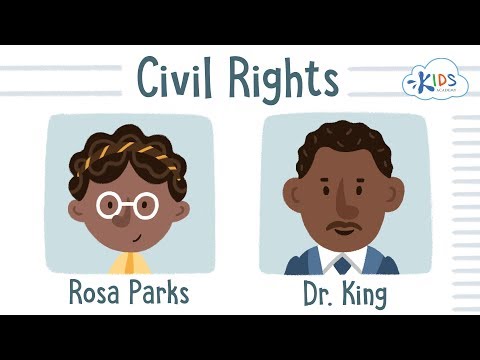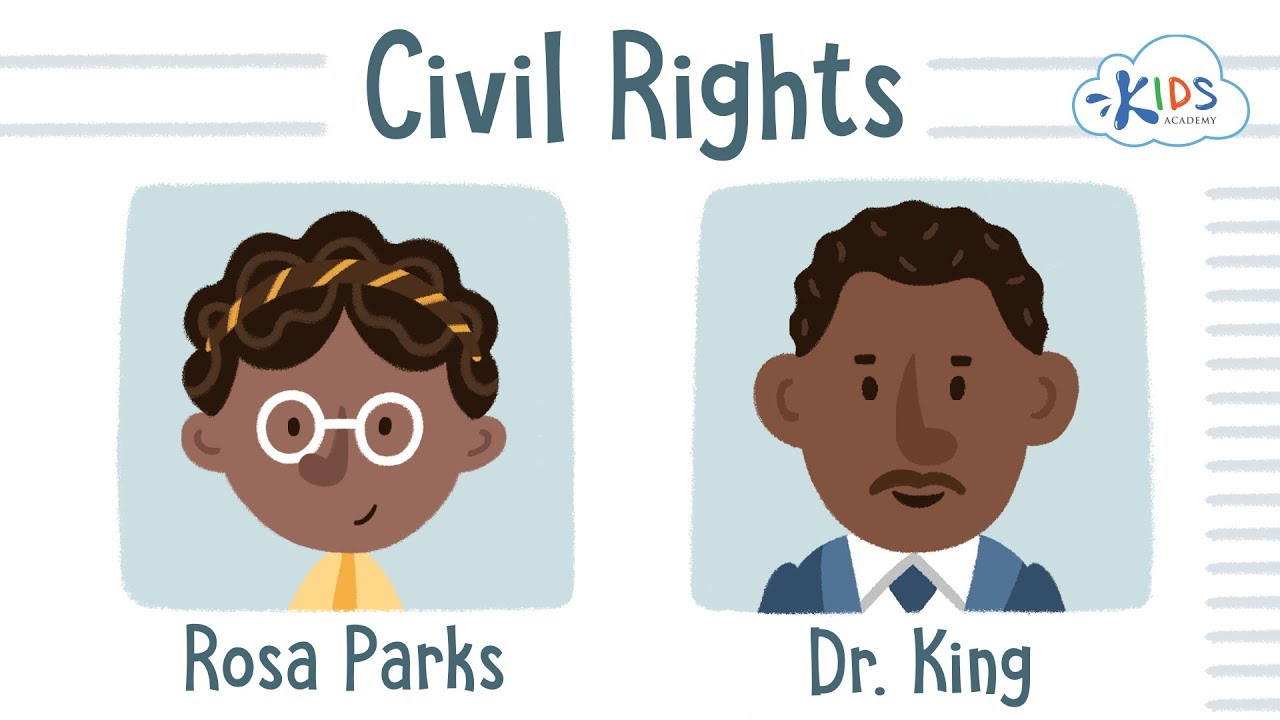The Civil Rights Act of 1964 was a landmark legislation that forever changed the course of American history. This act brought an end to racial segregation and discrimination, making it illegal to discriminate against individuals based on their race, color, religion, sex, or national origin. With this legislation, equality became the cornerstone of the American dream, ensuring that all citizens were granted the same rights, opportunities, and protections under the law. One of the key provisions of the Civil Rights Act was the desegregation of public spaces, including schools, restaurants, and public transportation. It marked the beginning of a new era, where African Americans and other minority groups could access the same facilities as their white counterparts. This momentous change opened doors and freed individuals from the shackles of prejudice, allowing them to fully participate in public life without fear of discrimination. Moreover, the Civil Rights Act of 1964 established the foundation for future legislation that aimed to eradicate discrimination in all its forms. It paved the way for subsequent acts such as the Voting Rights Act of 1965 and the Fair Housing Act of 1968, which further strengthened the protection of civil rights and expanded opportunities for marginalized communities. The Civil Rights Act of 1964 is a testament to the power of justice and the resilience of the human spirit. It transformed American society, challenging deeply ingrained prejudices and promoting inclusivity and equal treatment for all. The impact of this historic legislation continues to reverberate today, reminding us of the progress made and the work that still lies ahead to achieve true equality.

The Impact of the Civil Rights Act of 1964
| Area | Impact |
|---|---|
| Employment | The Act prohibited employment discrimination based on race, color, religion, sex, or national origin. It ensured equal opportunities for all individuals, leading to increased diversity in workplaces and fair hiring practices. |
| Public Accommodations | By outlawing racial segregation in establishments such as hotels, restaurants, and parks, the Act provided equal access to public facilities for all citizens. This change fostered social integration and helped dismantle the Jim Crow system. |
| Voting Rights | The Act aimed to protect and enforce the voting rights of racial and ethnic minorities. It prohibited discriminatory practices such as poll taxes and literacy tests, ensuring that all citizens had equal access to the voting booth. |
| Educational Institutions | It prohibited segregation in schools and colleges, promoting educational equality for all students. This landmark legislation paved the way for desegregation efforts, leading to a more inclusive and diverse educational system. |
| Government Funding | The Act stated that federal funds could not be provided to organizations or programs that engaged in discriminatory practices. This provision led to increased accountability and encouraged equal treatment in receiving government support. |
“Revolutionary Heroes United: Rosa Parks, Martin Luther King, and the Triumph of Civil Rights”
The Civil Rights Act of 1964: A Landmark Legislation for Equality and Justice
Enacted on July 2, 1964, the Civil Rights Act of 1964 is one of the most significant pieces of legislation in American history. This transformative law brought about sweeping changes in the United States, aiming to end discrimination and ensure equal rights for all citizens. Let’s delve into the key provisions and impacts of this landmark law.
Prohibition of Discrimination in Public Accommodations
The Civil Rights Act of 1964 outlawed discrimination based on race, color, religion, sex, or national origin in public accommodations. Prior to this legislation, many establishments, such as hotels, restaurants, and theaters, were allowed to deny service to individuals solely based on their race, leading to widespread segregation and inequality.
By prohibiting such discrimination, the Civil Rights Act of 1964 aimed to create a more inclusive society, where all individuals could access public facilities and services regardless of their background. This provision laid the foundation for a more equal and integrated America.
Prohibition of Employment Discrimination
The Civil Rights Act also addressed employment discrimination, prohibiting employers from discriminating against individuals based on race, color, religion, sex, or national origin. This provision ensured that hiring decisions, promotions, and workplace conditions would be based on merit rather than discriminatory practices.
Through this groundbreaking legislation, the federal government took a stand against workplace discrimination, fostering equal opportunities for all Americans. The Act aimed to eliminate the barriers that had hindered marginalized groups from accessing quality jobs and advancing in their careers.
Creation of the Equal Employment Opportunity Commission
The Civil Rights Act of 1964 established the Equal Employment Opportunity Commission (EEOC), a federal agency responsible for enforcing the Act’s provisions against employment discrimination. The EEOC investigates complaints of discrimination, educates employers and employees about their rights and responsibilities, and promotes equal employment opportunities.
The creation of the EEOC marked a significant step forward in the fight against discrimination. This agency plays a crucial role in ensuring that individuals are protected from unfair treatment in the workplace and have a platform to address their concerns.
Desegregation of Public Schools
The Civil Rights Act also addressed the issue of racial segregation in public schools. It prohibited the segregation of students based on race, ensuring that educational institutions were open to all children, regardless of their racial background.
This provision of the Act was a pivotal moment in the civil rights movement, as it challenged the long-standing practice of racial segregation in education. It paved the way for greater integration in schools, fostering an environment where all students could learn and grow together.
Expansion of Voting Rights
The Civil Rights Act of 1964 also contained provisions to protect and expand voting rights. It prohibited discriminatory practices that had been used to disenfranchise African Americans, such as literacy tests and poll taxes.
By removing these barriers, the Act aimed to ensure that all citizens had equal access to the voting booth, regardless of their race or socioeconomic status. This expansion of voting rights was a significant milestone in the ongoing fight for political equality.
Conclusion
The Civil Rights Act of 1964 was a watershed moment in American history. Through its provisions, it sought to dismantle centuries of systemic discrimination and establish a more equal society. Although challenges and injustices persist, this landmark legislation remains a cornerstone of the ongoing struggle for civil rights and social justice.
By prohibiting discrimination in public accommodations and employment, creating the EEOC, desegregating public schools, and expanding voting rights, the Civil Rights Act of 1964 laid the groundwork for a more inclusive and equitable America. It serves as a reminder of the power of legislation to shape a nation and inspire change.
Civil Rights Act of 1964
Frequently Asked Questions
What did the Civil Rights Act of 1964 do?
Who supported the Civil Rights Act of 1964?
What were the key provisions of the Civil Rights Act of 1964?
1. Prohibition of discrimination: The act made it illegal to discriminate against individuals based on race, color, religion, sex, or national origin in public places, employment, and federally funded programs.
2. Creation of the EEOC: The act established the Equal Employment Opportunity Commission (EEOC) to enforce its provisions and investigate complaints of discrimination in the workplace.
3. Desegregation of public facilities: The act mandated the desegregation of public facilities such as schools, parks, and transportation, ensuring equal access for all.
4. Voting rights protection: The act provided legal protection for African Americans and other marginalized groups, ensuring their right to vote and eliminating discriminatory practices that had hindered their access to the ballot box.
5. Equal opportunity in employment: The act prohibited discrimination in employment practices, including hiring, firing, promotions, and compensation, based on race, color, religion, sex, or national origin.
These provisions were instrumental in dismantling legal segregation and discriminatory practices, paving the way for greater equality and civil rights for all Americans.

